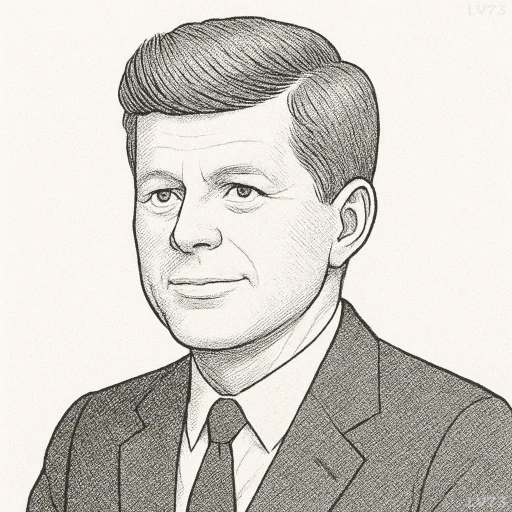“War will exist until that distant day when the conscientious objector enjoys the same reputation and prestige that the warrior does today.”

- May 29, 1917 – November 22, 1963
- American
- Politician
table of contents
Quote
“War will exist until that distant day when the conscientious objector enjoys the same reputation and prestige that the warrior does today.”
Explanation
In this statement, John F. Kennedy expresses a profound critique of the way society views war and the individuals who choose not to participate in it. Kennedy envisions a future where conscientious objectors—those who refuse to fight in war for moral or ethical reasons—are given the same respect and prestige as warriors, who are traditionally celebrated for their bravery and sacrifice. At its core, the quote challenges the conventional understanding of honor and valor, suggesting that the true measure of a person’s moral courage may not always be found in military combat, but in the conviction to oppose violence and war, even when doing so places one in opposition to the prevailing social norms or political powers.
Kennedy’s words were particularly relevant during the Vietnam War, when the issue of conscientious objection was a point of significant controversy in the United States. Many young men faced the moral dilemma of either serving in a war they believed was unjust or risking punishment and social stigma by refusing to fight. Kennedy, as a leader deeply involved in international affairs, was acutely aware of the human costs of war—both the direct losses of life and the broader psychological and social tolls. By linking the reputation of the warrior with that of the conscientious objector, he suggests that true courage may involve standing up for peace and justice, rather than blindly conforming to the demands of militarism.
In modern terms, Kennedy’s quote invites reflection on the moral complexities of war and peace, especially in a world where military conflict remains a part of global geopolitics, and conscientious objection continues to raise difficult ethical and political questions. While there has been progress in recognizing the rights of conscientious objectors, they are still often seen as marginalized figures rather than celebrated moral leaders. Kennedy’s call to elevate the status of conscientious objection reflects the ongoing need for a broader cultural shift—one where the courage to resist war is as valued as the courage to engage in battle. This perspective is particularly pertinent in today’s world, where international peace efforts, human rights, and diplomatic resolution are increasingly viewed as essential alternatives to military intervention, and where the moral courage of those who resist war, whether through nonviolence or active advocacy, can play a pivotal role in shaping the future of global peace.
Would you like to share your impressions or related stories about this quote in the comments section?



